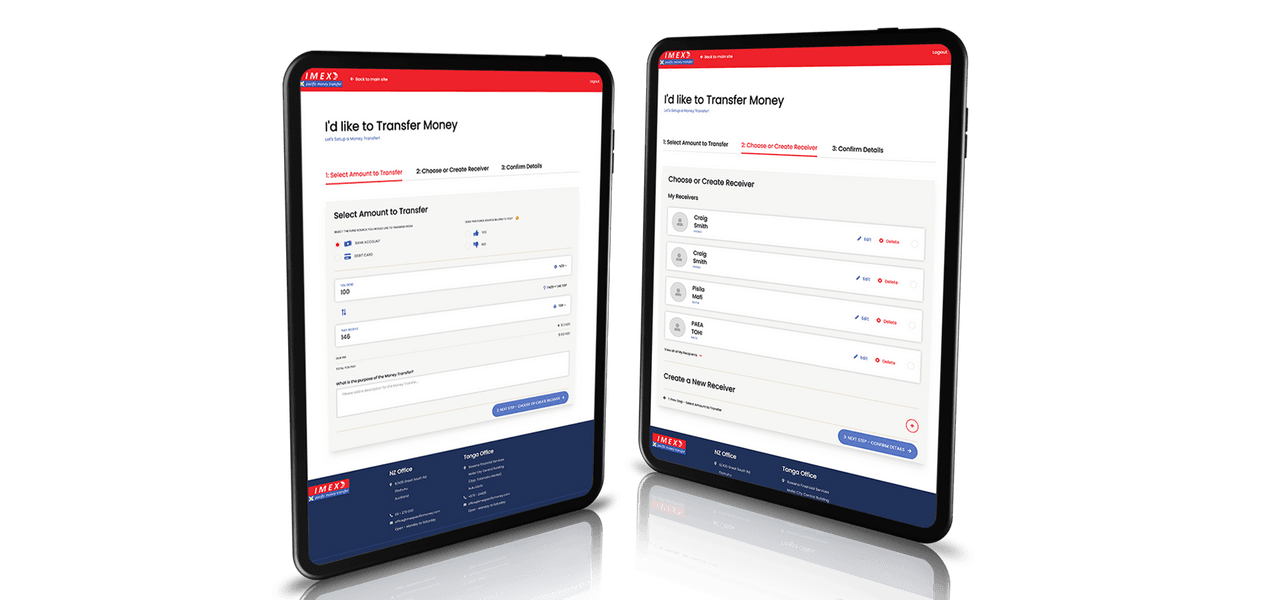
AWS Cost Optimisation
We drastically reduced tenancy.co.nz's monthly AWS bill and enabled them to run a complex system at scale.
tenancy.co.nz
IMEX have been providing a crucial money transfer service between New Zealand and Tonga for over 20 years. With a recent expansion into Samoa and plans for other Pacific countries, they are set for growth.
A key factor in enabling that growth has been the development of a custom web app, which has led directly to a 500% increase in the number of transfers processed monthly. That is now possible because the manual time required for each transfer has decreased from an average of 15 minutes to 1-2 minutes.
With this kind of throughput and growth, IMEX needed infrastructure under the hood that would scale to growing demands and peak times, and offer a high level of security and resilience.
They’re patient with us — as we learned more about what customers need, we wanted to make some changes, and they accommodated our wishes. Moreover, they’ve been hands-on with our staff
Maliana Tohi – Director, Imex Money Transfer
For best practice, we run infrastructure as code using Terraform and this is deployed across multiple availability zones for redundancy. We also configured a Kubernetes cluster to auto-scale to meet demand and increase reliability when needed. We’ve also helped IMEX setup critical back-ups (as RDS snapshots for application data) and put in place a disaster recovery plan.
This is all monitored 24/7 with alerting through to our on-call team.
We used containerisation in conjunction with EKS for this project. Database workloads are running on the serverless Aurora service and peaky workloads such as PDF generation has been offloaded to Lambda functions and queued jobs through SQS. This approach provides a good balance between performance and cost, as it is able to scale up and down depending on demand, making the most of the elasticity that AWS provides.
Each month, our team use a set of tools to review the ongoing AWS costs as part of our managed service. The initial workload was deployed on-demand to establish a baseline and now we are in the process of booking in reserved instances as a cost optimisation exercise. Serverless architecture is utilised where possible so that it automatically scales to meet demand, and reduces ongoing cost.
To ensure security, all important and sensitive data is encrypted using industry standards. Data stored in EFS and S3 is configured to be encrypted at rest and in transit. Application data (including PII) stored in RDS is also encrypted using public/private key encryption on a per user basis.
